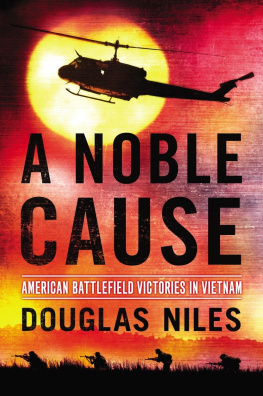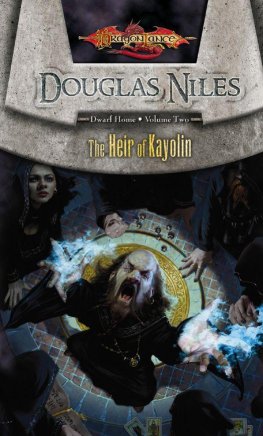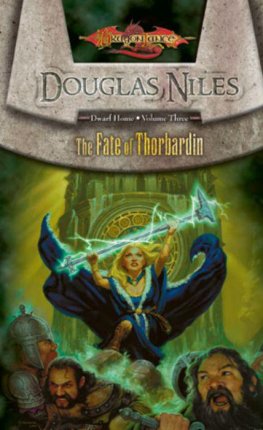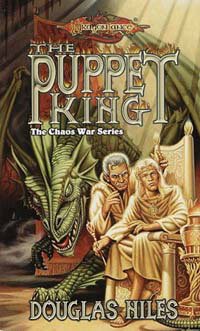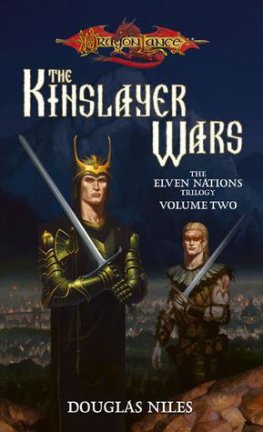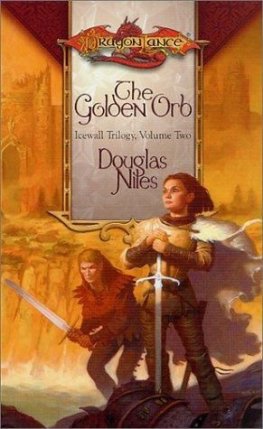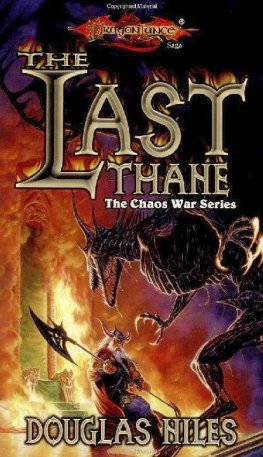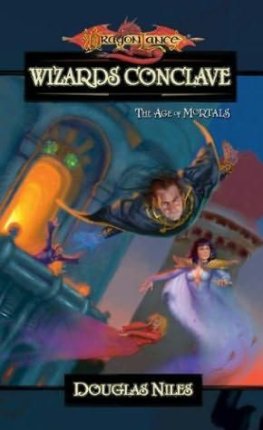Douglas Niles - Goddess Worldweaver
Here you can read online Douglas Niles - Goddess Worldweaver full text of the book (entire story) in english for free. Download pdf and epub, get meaning, cover and reviews about this ebook. genre: Romance novel. Description of the work, (preface) as well as reviews are available. Best literature library LitArk.com created for fans of good reading and offers a wide selection of genres:
Romance novel
Science fiction
Adventure
Detective
Science
History
Home and family
Prose
Art
Politics
Computer
Non-fiction
Religion
Business
Children
Humor
Choose a favorite category and find really read worthwhile books. Enjoy immersion in the world of imagination, feel the emotions of the characters or learn something new for yourself, make an fascinating discovery.

- Book:Goddess Worldweaver
- Author:
- Genre:
- Rating:4 / 5
- Favourites:Add to favourites
- Your mark:
- 80
- 1
- 2
- 3
- 4
- 5
Goddess Worldweaver: summary, description and annotation
We offer to read an annotation, description, summary or preface (depends on what the author of the book "Goddess Worldweaver" wrote himself). If you haven't found the necessary information about the book — write in the comments, we will try to find it.
Goddess Worldweaver — read online for free the complete book (whole text) full work
Below is the text of the book, divided by pages. System saving the place of the last page read, allows you to conveniently read the book "Goddess Worldweaver" online for free, without having to search again every time where you left off. Put a bookmark, and you can go to the page where you finished reading at any time.
Font size:
Interval:
Bookmark:
Goddess Worldweaver
Troy Denning
Shout the names of God,
Hail the gods of fame;
Cry the yell of war,
And mute the call of blame.
Heed the ancient creed,
Scorn the one falls lame,
Raise the warriors sword,
To slay begets the same.
From the Tapestry of the Worldweaver, Bloom of EntropyPrologue
T here was a thing he hated most, hated more than the machine guns and the gas and the stink and the death; that thing he hated was the mud. He felt as though he had become a being made of soft, wet dirt. At first the mud had been like a layer of skin, heavy and cloaking and smothering, but by now it had seemed to seep into the very center of himself, so that his heart was a muscle of clotted clay, his lungs and limbs and head mere shapes of thick, viscous soil.
For the first weeks he had kept track of the days, and for the first months he had made an effort to distinguish individual weeks. Now that the years stretched into the third hot, humid summer, the months had blended into an indistinguishable morass, vaguely broken into seasons: in winter, the mud was cold. In summer, it was not so cold.
Intermittently, when the generals ordered the colonels to order the sergeants to lead the men out of the trenches, life in the mud was enlivened by the opportunity to die. Of course he went forward with the rest of them: his own regiment, drawn from the dairy-greened countryside of the south; and all the rest, boys and young men from London and Liverpool, Glasgow and Bristol, from Wales and Ireland and the craggy Highlands of the north. They rose in a mass, cheering and charging, rifles held before them, metal helmets like inverted dinner plates on their heads.
These brave men sallied from their muddy holes in a great rush, like a tide sweeping across a beach. They slogged across sticky ground, pressing through coils of barbed wire. They ran into the streaming fire of machine guns, the water-cooled darlings of Maxim, guns that stitched the air with streams of whistling lead, weaving a pattern of deadly intricacy. The bullets were tiny and seemingly insignificant things when compared to the mass and complexity of a man, but they flew very fast, and when they encountered flesh they still flew very fast and left the flesh and the vessels and the bodies torn and bleeding from their passage.
He knew the ways of bullets. Over the course of 1914 and 1915 he had charged into that tapestry of death on many occasions, and he had seen many of the boys from Kent torn by the lethal weavers. Some of them had been his friends, and more than one had died in his arms. During those years he had looked upon fields of carnage such as he could never have imagined. He had smelled the deadly whiff of phosgene gas, heard the rumbling growl of engines as aircraft snarled over the battlefields. He made new friends to replace those who were slain, but he kept these at a distance, and when they died it was not so painful for him, at least. He knew there would always be the tears, shed in the cottages of the verdant countryside. But on the dark battlefield he had moved beyond any awareness of grief.
There was only the mud.
He lost count of the dead comrades, just as he lost count of the days and weeks and months during which he had lived this nightmare. A part of him was conscious of the horror, but he always told himself that it would get better, that it would-it must-soon come to an end. The greatest nations in Europe had been bashing each other bloody for two years by now; surely they were running out of will, out of steel and powder. At least they must be exhausting their supplies of young men.
His regiment came into the lines along the Somme during a time when the mud was not so cold; his colonel would have told him that it was late June, in the Year of our Lord, 1916. His captain was fond of the Lord and never failed to take advantage of an opportunity to remind his men that He was with them, with them in the trenches, with them when they rose from the dirt to scramble again into the bloody loom of the machine-gunning-weavers, with them as their flesh was torn and their blood scattered across the field, wet and slick to make a very precious kind of mud.
And the colonel proclaimed with great certainty that the Lord was with them after that, as well.
A period of a week or so passed while he lay in the trenches at the Somme. Guns pounded incessantly, a massive bombardment that continued for a very long time. Any of the officers could have told him that the barrage lasted for seven days, but he was beyond caring about such details. He merely lay in the mud with his comrades and waited.
Finally the big guns fell silent, and the order came to the men along many miles of trenches, the men of the British Third and Fourth Armies. In unison and in bravery they rose from the mud, crawled from their trenches, and hurled themselves against the German weavers who waited with machine guns ready, prepared as ever to sew their deadly fabric.
Of course, the brave men of England never had a chance. Courage and fortitude and comradeship and resolve meant nothing to those little bits of lead hurtling just above the ground. The enemy gunners were patient and skilled, and the friendly generals had no concept of any other way to make war. They could only send their men, the future and the promise-the very lifeblood-of their country, forward to perish in the hail.
In that storm he saw his sergeant fall, legs torn from that stocky wrestlers body by the ripping scythe of a water-cooled machine gun. More bullets flew, a tempest as engulfing as any winter storm. Blood splashed his skin as the man beside him died, and then he stumbled on the sticky ground, feeling the weight of age and war and mud drag him down, not knowing that his burden was heightened by the bits of metal that had already ripped through his flesh. He tumbled onto his face, and still he did not know that he had been shot, that each pulse of his heart sent precious blood spurting from the great gash in his side.
He lifted his head, saw a vista of wire and smoke and then his face again lay in the mud. It was soft, now really, it had at last become a part of him his flesh was this dirt and this dirt was his flesh. He thought of the Lord, that great friend of his colonel, and wondered if he would meet Him as his soul broke free to rise like smoke from the battlefield, borne in concert with the souls of twenty thousand Englishmen-twenty thousand on that day, in this place, alone.
But neither he nor any of the rest of them went to Heaven nor to Hell nor to any place that their captains or their mothers or their priests had described.
Instead, he found himself upon a death ship, sailing on the Worldsea, preparing for another war.
1
Armada
Tide of looming darkness,
Smoke and oil and blood,
Surging forth, engulfing,
Comes the lethal flood.
From Days of Worldfall by Sirien SaramaydThe bastion loomed high on the culmination of a world. Three great mountain ranges, jagged ridgelines that dominated their realm of shadow and chill, encircled the fortress like walls on a cosmic scale.
Great plains that had once teemed with ghost armies were still now, the hordes long ago marched off to war. Cliffs loomed silent and forbidding, while ramparts and towers stood empty and dark. Even the stony gargoyle, the bestial giant poised atop one of the loftiest crests, guardian of the great citadel itself, seemed as lifeless as a statue, a mere image carved from rock.
Deep harbors, sheltered by wall and tower, guarded by lofty fortress and shallow boom, had once contained the hulls of countless warships. Those ships were gone, formed into a fleet that had sortied more than fifty years earlier, embarked on the invasion of an entirely different world.
Font size:
Interval:
Bookmark:
Similar books «Goddess Worldweaver»
Look at similar books to Goddess Worldweaver. We have selected literature similar in name and meaning in the hope of providing readers with more options to find new, interesting, not yet read works.
Discussion, reviews of the book Goddess Worldweaver and just readers' own opinions. Leave your comments, write what you think about the work, its meaning or the main characters. Specify what exactly you liked and what you didn't like, and why you think so.

